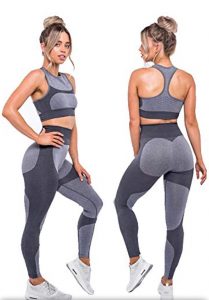Will it Change the game?
What lies ahead?
Buyers Share their response on 2021….
2021 has arrived..
Now that the New Year and vaccine has arrived industry is keeping its fingers crossed for growth and revival of business.
The crisis that happened all over the world due to Covid 19 pushed apparel exports business to all time low.
Major export destinations for India like the US and EU were under lockdown which resulted in cancellation of orders and delayed payments.
Now that the vaccine has come and the vaccination drive has started in many countries including India it is expected that the business will slowly change its course and will come back to pre -Covid levels.
However, in the last one year apparel and textile business has undergone a major change. In order to survive and sustain in business both buyers and manufacturers have changed their working pattern in order to align themselves with the changing market trends.
In the absence of meetings, travel and even manpower concepts of digitalisation, virtual showrooms, virtual meetings, e-bidding, online sampling and technological upgradation took a huge leap.
Now the question is when will business come back to pre- Covid levels and how the sourcing pattern will change in 2021?
To find out the answers TEAM PERFECT SOURCING spoke to all well-known buyers to get opinion on the business in 2021.
ALPANA RAZDAN, COUNTRY MANAGER, FALABELLA
“Less travel, smaller and frequent buying along with more emphasis on sustainable, organic,
anti- viral and anti- bacterial finishes will take us forward.”
 Vaccine is a long-term process and we cannot expect normalcy to return till 1/3rd of the population worldwide is vaccinated or herd immunity is achieved.
Vaccine is a long-term process and we cannot expect normalcy to return till 1/3rd of the population worldwide is vaccinated or herd immunity is achieved.
Several countries are still under lockdown thus not much can be said as of now on how business would be impacted for the whole of 2021.
However, the good point is that globally online sales have been a key driver of growth as people have started working and going out which is bringing back the sales.
Falabella is a South American chain and we will start our high summer buying in February end and March.
As expected buyers are cautious, however, we have already started booking presummer and summer orders are supposed to be at par with what we received in 2019 or within a shortfall of 10-15 % .
In 2021 second half we will see business getting back to normal and for customers who have already been
working on exit strategy from China will start putting more business both in India and Bangladesh.
Online has really helped drive our sales and the emphasis is to make it stronger and build business based on the same.
As far as product categories that can fetch good demand in the coming year is concerned I feel product categories be it fashion, handcrafted , casual or athleisure will work well.
Also, I do feel focus moving towards sustainable and organic products.
Athleisure might see more growth in the coming year.
Business will move forward as per the trends and fashion forecast.
Manufacturers and vendors have realised the importance of being flexible, technologically advanced and I believe India coped really well with presenting online showrooms / e-bidding and now the process of upgradation and offering a competitive advantage over other countries via product / digitalisation / flexibility and price advantage should continue.
believe India coped really well with presenting online showrooms / e-bidding and now the process of upgradation and offering a competitive advantage over other countries via product / digitalisation / flexibility and price advantage should continue.
As far as business diverting towards India is concerned I would say that buyers’ have understood the importance of keeping India on the grid as a strong sourcing base.
The sentiment of moving Less travel, smaller and frequent buying along with more emphasis on sustainable, organic, anti- viral and anti- bacterial finishes will take us forward business from a reliable and established sourcing base cannot happen overnight.
A lot of work and planning requires to be done.
For instance, we do not have the same quality fabric available in India and even the trims available are not price effective and impressive.
Covid-19 has definitely changed apparel and fashion retail dynamics all over the world as I do not see ourselves moving back to old pattern of predetermined and set buying patterns.
Less travel, smaller and frequent buying along with more emphasis on sustainable, organic, anti- viral and anti- bacterial finishes will take us forward.
As far as product categories that can fetch good demand in the coming year I feel we will start seeing new movement towards all product categories be it fashion, handcrafted , casual or Athleisure .
I do feel an emphasis moving towards sustainable and organic.
Athleisure might see more growth in the coming year.
 Yatish Moncourt, CEO, Galypso Global
Yatish Moncourt, CEO, Galypso Global
“Apparel will have to marry eco-friendly yarns and dyes to make fashion which is kind to the Earth.”
The vaccine has come, however, the vaccination process will take its time may be a few more months to about a year, or even more.
The broken supply chain has to heal, and come together as one again. Since we do not have integrated supply chains, it will take longer.
When you force a complete shutdown, all the parts in the supply chain have to be restarted and re-oiled.
Some get back to peak faster, and others slower.
This is a slow process and it will take a few months for the supply chain to get back to optimum productivity.
Demand has to come from the importing countries.
Most of the major trading partners of India ( Europe, UK and US ) are still reeling under the COVID-19 slowdown and lockdowns Retailers and brands have sold 25 to 40% less in 2020, than in 2019.
We need to remain hopeful that the vaccine rollout will bring back normalcy and allow the retailers and brands to open all their outlets to recover sales in 2021.
This is not the case for the time being.
As far as the dynamics of the industry and orders for exporters are concerned it depends on the market segment.
“The up- market retailers and brands are selling lower volumes. The low price private labels and discount brands are still selling the same volumes as they were in 2019. The e-commerce players are increasing their volumes.”
So it is a mixed bag.
As a company, we are bullish and are aggressively pursuing volumes.
I think the new normal will come by the end of 2021, and we will increase business from mid to end 2022. Thus, our strategy for the new FY is to consolidate business; satisfy our existing clients and look for new brands which are growing and work with them.
For the time being it is mostly basics and basic fashion which is selling.
Of course, certain categories like Loungewear, nightwear and athleisure have also grown tremendously and needs to be developed further, in terms of fabrics and styles.
At the moment production capacities are available, yet the challenge of yarn price increase is looming as a big threat which can suffocate growth further.
“My suggestion to Indian exporters will be to open up to new markets in the Far – East, Australia, and South America, and Africa as well.”
Buyers will go where they get the right product, at the right price, and a complete service which delivers goods and sell on time.
China and the EU are already cozying up again.
The consumer has become frugal and learnt that they do not need that much to wear.
The store closures have changed the mindset of consumers who is now willing to buy more online and is more conscious about “saving earth and its environment by consuming less and remaining updated about what they buy.
Even though this is a small percentage today, it will grow.
Just like EV’s ( Electric vehicles ) in the automobile space will rule in the coming decades, apparel will have to marry eco-friendly yarns and dyes to make fashion which is kind to the Earth.
Fashion has always been cyclical.
The changes we see now are different. The internet and technology ( IOT ) will play a major role in changing the way products are sourced.

DEEPA NEWAR, COUNTRY MANAGER, EURO GROUP
Organic And Environment Friendly Products At Price Entry Levels” Will Be The Focus
Vaccine is a big relief, but it will take many months before we see market settling down.
Post lockdown we saw a sudden demand, however, now to gain advantage flexibility in customer’s approach for quantities, faster deliveries and design elements is required.
Also, we need to re-define our working and become more efficient with timelines, MOQ’s and Product Development.
We have been reviewing 2020 and this Corona crisis carefully to drive our future strategies.
“Buyers will go where they get the right product, at the right price, and a complete service which delivers goods and sell on time.”
While on one hand we will continue to focus on our core strategy of focusing on “organics” and “environment friendly” products at the same time we would also offer Entry Levels Products”.
We are seeing diversion towards comfortable clothing which can be used anytime anywhere and the trend will continue.
New product developments, short timelines to make the product ready will be the key to future.
Online and Digital will drive the growth for most of the products.
Even traditional shoppers have learnt digital ways to run so the business will be required to adapt to new customers who are digital savvy and offer flexibility.
Efficiencies, quality and innovative products will drive business in the future.
India will continue to see opportunities while facing competition with other developing markets like Vietnam, Bangladesh, Thailand and Myanmar.
As I said before fashion industry will have a “New Normal”.
From comfortable clothing to new fabrics to new ways of selling new normal will evolve with customer behaviour and we must adapt to it.
 Linda Augustsson, Continuum Buying Agency
Linda Augustsson, Continuum Buying Agency
A professional focused mindset would not only help company owners to become a better version
of themselves, but also the industry in total.
Yes, we do believe that the vaccine will drive the world forward again and that includes the textile and
apparel exports of India.
The real impact of Covid is seen now as cotton and viscose prices have gone up and fabric prices have escalated.
Credibility is also compromised by broken process such as the fake GOTS transfer certificates, shooting up prices and slowing down of lead-times beyond buyer’s expectations.
“We are placing orders for fall but currently the process of decision making is slow. While we have quitea lot of sampling in the pipeline; developments are happening at normal pace, with few exceptions.”
Manufacturers who sought for solutions based on maintaining strong relationships have clearly come out as winners and not all exporters are in crisis.
On the contrary some have done really well.
Business has consolidated to fewer factories, who were able to service, comply and fulfill demand of
buyers in hours of crisis.
In the new normal, none of us should be obliged to nurture every exporter, in fact, we have to be clear about who we think should be in the vertical supply chain.
There must be a minimum level of commitment, professionalism and common sense across the supply chain.
India as a total must step up the game and should be more professional and eliminate organisations that are not working with the right mindset.
We are placing orders for fall, but currently the process of decision making is slow.
While we have quite a lot of sampling in the pipeline; developments are happening at normal pace, with few exceptions.
For S/S 2022, we predict that India will be required to reset and become more professional.
The mindset is not necessarily to do a perfect job; but rather avoid compromises at every step for instance being more cautious from the fabric development stage itself which starts at the mill.
The consequences of callousness results in chemical tests failure later in the process.
In a desperate attempt to save a few rupees here and there a customer’s credibility is lost.
The strategy of our company for the new FY is to be of service and do everything we possibly can to customize the service level towards each individual that we work on the buyers’ side.
As buyers are also working from home for almost a year now, we have seen how important it is to have a back up.
As a company it is all about going lean in the supply chain and to work with fewer suppliers who are professional and are aligned with our vision and mission and have well established teams in place.
We continue to embrace modern technology, but don’t find ourselves making much progress as we did a year back; we are more conscious of evaluating what is the best way to achieve expected end results, and understand that modern technology is a great tool but cannot replace all old methods.
Products which will fetch demand this FY include lifestyle and home related products as consumers continue to spend more time at home.
Products that have used natural materials like recycled fabric and are sustainable will also drive demand.
Business dynamics have changed as shorter lead-times are required due to last minute order placements.
The approval process is often closed at the order confirmation stage only.
This helps to safe guard actual production process, limits approvals in unprecedented times with limited office access.
“Business dynamics have changed as shorter leadtimes are required due to last minute order placements. The approval process is often closed at the order confirmation stage only.”
We also see a greater need for new product and fabric innovations.
2021 is not going to be easy and one can either accept it for what it will be or perhaps one should choose a different path in life.
A professional focused mindset would not only help company owners to become a better version of themselves, but also the industry as a total.
I would like to suggest to all factory owners to understand the value of building proper teams and aligning them with your vision and mission.
To treat teams with respect and to bring in professional team members instead of mediocre family members can be immensely powerful.
It is still surprisingly common that factory owners are “forcing” the next generation to get into the business, because that is how it has always been.
On business moving from China to India I would say we should focus less on what China is doing and more on to become the best version of ourselves and once we manage that, we will have more business coming our way.
What is the point to have a temporary spike in business in India if we are not mentally and practically ready to handle it really well?
One never gets a second chance to give a first impression, India is no exception.
Going forward, we are of firm belief that the new sourcing pattern will be a hybrid between the old traditional method and modern technology.
Traveling will resume soon once the vaccine has been rolled out.
It will be the key to the business as after all, we work with physical products which are tied together by strong relationships and we will always crave for meeting each other in real life.
Virender Sharma, GM Sourcing,Quality, KAS Asia Ltd.
“Retail is doing well at the top and bottom level of the spectrum.”
The industry is eagerly looking forward for the environment to return to normalcy.
As we speak, vaccines are still being administered to front line workers and health workers, so confidence will increase over a period of time.
Consumer demand for discretionary items is already high.
While fall in demand was sharp, there is enough economic data, which shows that the rebound in economies has been quick.
In fact, much quicker than what we saw post GFC 1 and 2.
With retail sales doing well there is a good opportunity for clothing manufacturing for exports to not only revive, but also do better than earlier.
This will also be helped by the pivot of global retailers out of China due to rebalancing of supply chains and other issues such as banning of Xinjiang cotton.
However, there is an immediate need for Indian manufacturers to create a value proposition for India to drive
growth.
They must focus on newness and innovation to garner a bigger piece of the market share.
The government of Australia and New Zealand have managed the Covid crisis very well; as a result, our sourcing business is growing this year due to increase in comp sales and new store openings.
India is part of our growth strategy.
We are looking at placing more business with our strategic partners and actively looking for new suppliers who can offer us good value proposition.
Retail is doing exceptionally well at the top and bottom level of the spectrum.
Value retail is thriving, and luxury is also doing well, the struggle is probably at the mid-market level especially with speciality retailers as consumer demand shifts from certain categories of product such as formal clothing and footwear.
Kmart Australia will continue to focus on our previously laid out strategies around building digital capabilities throughout our businesses, actively working on country diversification to mitigate risks, process automation and delivering great products to our customers for an amazing experience.
Casual and active products will continue to be in trend simply for the reason that it will take some time to see complete normalcy.
Work from home culture will continue to be the new normal.
Comfort continues to be a key priority, hence stretch and softer hand feel will continue to gain traction.
Technology enabled products will gain traction along with continued demand for sustainable products.
As far as the challenges are concerned, currently we are also facing certain headwinds like everyone else especially around organic cotton and few currencies appreciating against the USD.
Supply chain disruption is a big challenge that everyone is grappling with currently.
The need of the hour is to invest in digital capabilities and technology, improve competitiveness, deliver consistently, improve quality standards and build capabilities for competitive synthetic and winter products.
We just can’t rely on cotton products largely to drive growth in this sector.
There is a need to develop a culture of operational excellence to build credibility against competing countries.
Indian exporters need to expand their offer in terms of fabrics, push up the quality standards and stay agile in their approach delivering a good quality product consistently on time.
“Value retail is thriving, and luxury is also doing well, the struggle is probably at the mid-market level especially with speciality retailers as consumer demand shifts from certain categories of product such as formal clothing and footwear.”
The Indian government must come up with some support to apparel which is long due.
It is high time for the textile sector to drive investments and innovation.
Covid-19 has impacted the world significantly and the aftereffects will last for long.
2021 will be a year to build resilience into supply chains.
In fact, many of us wonder what will be the new normal as it is yet to be defined. Consumers across countries may have different levels of optimism.
Economies with younger population such as India will act differently than economies with an older population for e.g. France and Italy.
This will define the road for recovery and the time these economies will take to return to normalcy.
Most of the surveys indicate that consumers are optimistic, but at the same time cautious.
This cautiousness in consumer behaviour will force retailers to approach their sourcing and product offerings differently.
Many retailers across the globe have gone out of business and we have seen the impact on manufacturers as well.
As global demand shrinks, the supply has also been impacted.
Retailers won’t be looking at building massive inventories as they did in the past.

